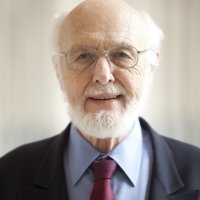Debts, Deficits, and Development

The debates surrounding the U.S. national debts and deficits bring with them implications for both overall U.S. development policy and the budgets of USAID and the Department of State. These implications were the focus of the Wilson Center on the Hill event that took place on Tuesday, August 2. The event was moderated by John Sewell, Senior Scholar at the Woodrow Wilson Center. Sewell saw a contradiction between Congressional action on deficit reduction that could potentially reduce funding for development-related initiatives just as the the U.S. government is “for the first time… is taking development and the notion of development very seriously.”
After an introduction from Sewell, Gordon Adams, Distinguished Fellow at the Henry L. Stimson Center, began by talking about the lack of attention that international affairs and the civilian side of U.S. international engagement usually receive in the U.S. budget. He noted the growth in supply of personnel and funding at USAID and the Department of State over the past ten years as a success, adding that a fair amount of this growth was related to the conflicts in Iraq and Afghanistan and the global effort against terrorist organizations. “Foreign policy, development, foreign assistance, diplomacy, have increasingly been viewed as a key part of a broadly defined ‘security budget’, Adams believes that including foreign policy and development as part of a broad concept of American security is a step in a positive direction.
In Adams’ opinion, the First Quadrennial Diplomacy and Development Review (QDDR) had the potential to restructure the Department of State and USAID, but lacked the force to prioritize programs and allocate funds effectively. He continued to emphasize the need for goals and priorities when he addressed the topic of managing a deficit reduction driven belt tightening at USAID or the Department of State. According to Adams, the four categories to consider in allocating resources for the United States in this field are security assistance, the key priorities for U.S. foreign assistance and development funds, conflict prevention and resolution, and better preparation and training of personnel at the State Department and USAID. In regards to preparing personnel, Adams lauded the military’s commitment to perpetual training of its members throughout their careers and suggested a similar program for members of the Foreign Service.
Focusing on how the current budget environment is impacting development, George Ingram, Co-Chair of the Modernizing Foreign Assistance Network, said that the decade of growth in the international affairs budget account for development may have just hit a brick wall. Ingram described the FY 2012 budget, which was “skewed heavily toward reducing the development accounts and protecting the security accounts”, resulting in an 11 percent cut overall from the 2011 level, with some of the development accounts being reduced by 20 or 30 percent.
While describing other budget cuts, including those affecting operating expenses that fund staffing, Ingram noted that USAID’s overall operating expenses were cut by 27 percent from FY 2011 levels. This operating expense reduction will not only likely halt the planned increase in USAID staff but may ultimately lead to some staff cuts. The failure to build up staff at USAID will reduce its ability to manage key development programs and slow the Department of Defenses’ hope to shift responsibilities for development work to civilian hands.
In response to a question about what the United States does and does not do well, Ingram stated that “what the United States has done well over the last 30 or 40 years is to identify a problem of development and devote serious resources to it for 10 years.” He cited examples such as the green revolution and oral rehydration and emphasized the benefit of a long-term perspective rather than approaching development on a project-by-project basis. Adams added that in light of shrinking resources, legislators will probably ask supporters of development about the tangible outcomes of investment in development and about the link between development and American interests.
When asked about setting priorities and goals, Ingram noted the lack of and the need for a U.S. development strategy. Adams added that he would place a very high priority on conflict resolution and conflict prevention. He also emphasized the need for expertise in governance and asserted that “the problem of governance in failing, fragile, weak, brittle authoritarian states” is a great risk to stability, citing the example of various events in the Middle East in the last six to seven months.
In response to a question about post-conflict environments, Adams emphasized the need to build the capacity to govern effectively, efficiently, and accountably. Ingram contributed his perspective, stating that “where we fall down is…in rushing too much money in right as the conflict ends for two or three years and then getting distracted by other crises from year five to ten; when the country’s built up a capacity and probably could use the assistance, our interest falls off.” In his opinion, that sequencing should be reversed.
By: Erica Pincus
Kent Hughes, Director, Program on America and the Global Economy
Speakers

Professor of the Practice of International Affairs, Elliott School of International Affairs, The George Washington University

Former President of the Overseas Development Council (ODC)